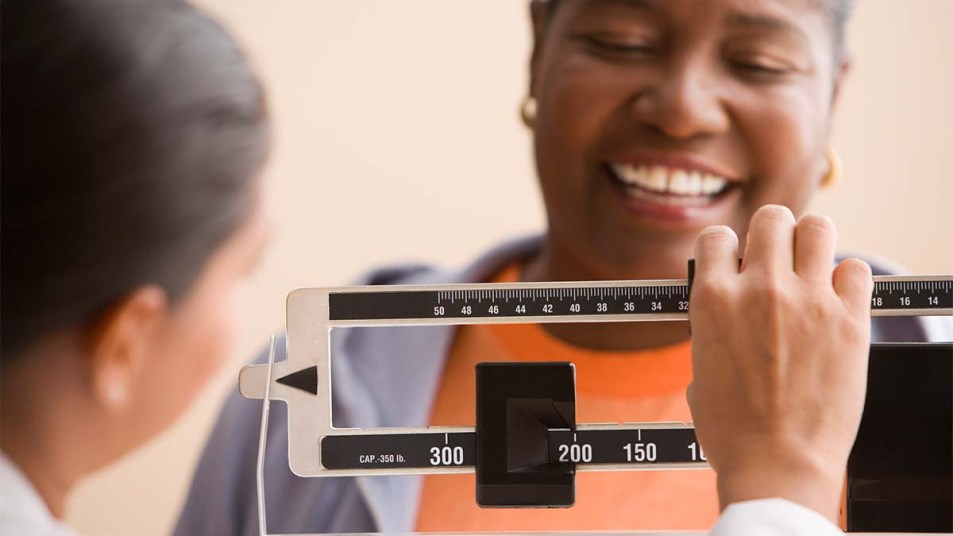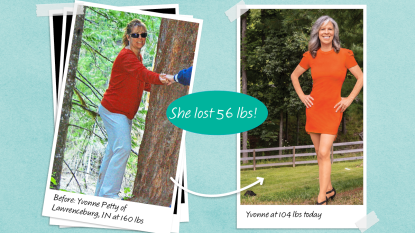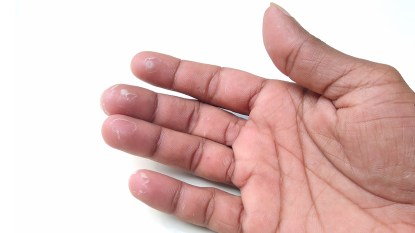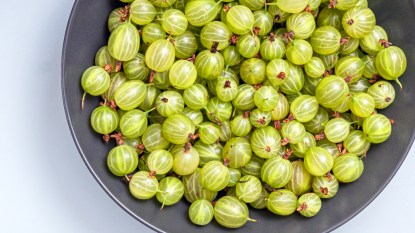May Health News: Researchers Find This Upside to Carrying a Few Extra Pounds

Keeping your health in tip-top shape ensures that you’ll feel great all year round. Luckily, making small diet and lifestyle tweaks go a long way to staying healthy. So, here are five recent health news updates for May!
Lowering salt intake may prevent insomnia.
Limiting salt to lower blood pressure is familiar advice, but now an animal study shows the strategy may bring another benefit: better sleep. Researchers at the University of Alabama at Birmingham found that mice fed a high-salt diet showed more nighttime activity in the brain than mice given less salt. The authors say the part of the brain that keeps our body clock in rhythm also contains receptors that manage sodium levels, and consuming excess salt heightens activity there — a factor that may lead to sleep troubles.
Relief for leg cramps.
Experts often advise drinking water after exercise to stay hydrated, but if you’re prone to leg cramps, a sports drink may be a better choice, say Australian scientists. In their study, subjects who drank water with electrolytes after a workout were less likely to have achy legs than those who drank plain H2O. That’s because electrolytes (magnesium, sodium, chloride, and potassium), which help the body hydrate more effectively, are lost via sweat, and plain water dilutes the body’s remaining electrolyte concentration, so you’re more prone to cramps. To make your own, mix one cup of water, two tablespoons of lemon juice, a pinch of salt, and one tablespoon of honey.
Fighting a cold may make COVID less severe.
That’s the word from researchers in Switzerland, who found that people with frequent exposure to the common cold (a type of coronavirus) have an increased level of antibodies to fight COVID-19. “Someone who has gained immunity to harmless coronaviruses is better protected against severe SARS-CoV-2 infections,” says lead study author Alexandra Trkola, PhD. The researchers say their findings don’t mean you can’t contract COVID, just that you’re more likely to get a mild case if you do.
An upside to carrying a few extra pounds is found.
It can protect against bacterial illnesses, say UK scientists. Their study, published in the journal Nature Communications, found that blood stem cells use high-energy fatty acids that are stored as fat to make millions of infection fighting white blood cells. And although they specifically looked at salmonella, the lead study author says this increased fighting power would also work against other bacterial infections.
A link between vision and dementia is discovered.
Correcting vision loss caused by cataracts lowers the risk of brain decline, say researchers at the University of Washington Medical School. In a study of more than 3,000 participants in JAMA Internal Medicine, older adults who had cataract surgery lowered their risk of dementia and Alzheimer’s by 30 percent — a safeguard that lasted 10 years. Study author Cecilia Lee, MD, says fixing vision impaired by cataracts improves the quality of sensory input, which benefits the brain; she credits the long-term protection to the renewed ability of blue light, which cataracts block, to wake up retinal cells linked with better thinking.
A version of this article originally appeared in our print magazine, First for Women.













